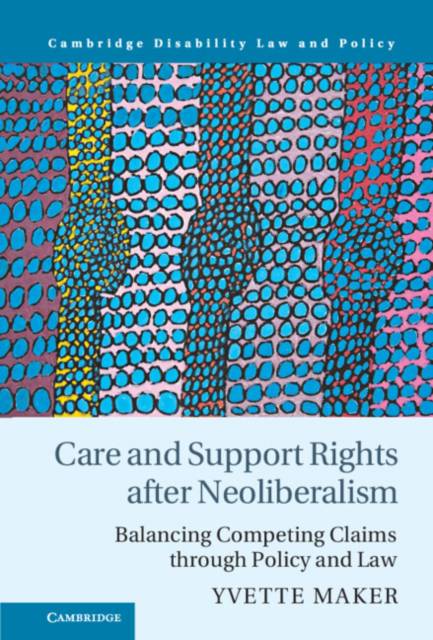
- Afhalen na 1 uur in een winkel met voorraad
- Gratis thuislevering in België vanaf € 30
- Ruim aanbod met 7 miljoen producten
- Afhalen na 1 uur in een winkel met voorraad
- Gratis thuislevering in België vanaf € 30
- Ruim aanbod met 7 miljoen producten
Zoeken
Care and Support Rights After Neoliberalism
Balancing Competing Claims Through Policy and Law
Yvette Maker
€ 198,95
+ 397 punten
Omschrijving
This book offers principles for designing care and support policy to address two persistent sources of tension in the field. The first is the tension between supporting women's unpaid caring and supporting their paid work participation. The second is the tension between carers' claims for support based on the 'burden' of caring and disability rights claims for support for choice and independence for people with disabilities. Policies tend to favor one activity and one constituency over the other. Consequently, individuals' access to resources and choices about how they live are constrained. Using a citizenship rights framework, with insights from human rights law, the principles provide guidance for designing policy and legislation that avoids 'either/or' approaches and addresses the interests of multiple constituencies. Analyses of Australian and English policies demonstrate the value of the principles for developing policy that reduces inequality, responds to 'failures' of neoliberalism, and expands choice for all.
Specificaties
Betrokkenen
- Auteur(s):
- Uitgeverij:
Inhoud
- Aantal bladzijden:
- 328
- Taal:
- Engels
- Reeks:
Eigenschappen
- Productcode (EAN):
- 9781108485203
- Verschijningsdatum:
- 28/04/2022
- Uitvoering:
- Hardcover
- Formaat:
- Genaaid
- Afmetingen:
- 152 mm x 229 mm
- Gewicht:
- 607 g

Alleen bij Standaard Boekhandel
+ 397 punten op je klantenkaart van Standaard Boekhandel
Beoordelingen
We publiceren alleen reviews die voldoen aan de voorwaarden voor reviews. Bekijk onze voorwaarden voor reviews.







